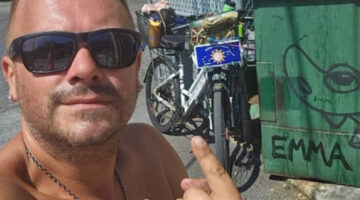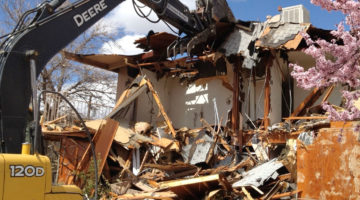USCG Seventh District
BY MAGGIE OLIVE KLEIN
KONK LIFE STAFF WRITER AND EDITOR
On June 23rd, Coast Guard Cutter Issac Mayo and crew repatriated 89 Cubans back to Cuba that were spotted about one mile south of Fort Zachary Taylor Beach. This is just one of many instances in which an illegal voyage is stopped by the U.S. Coast Guards of the 7th district.
The Coast Guard’s 7th District Headquarters in Miami is responsible for Coast Guard activities from South Carolina down to the Florida Keys and over to the Caribbean. According to their website, atlanticarea.uscg.mil, District 7’s mission statement is, “In a dynamic operational environment, the men and women of the Seventh District safely and effectively assist mariners on the sea and diligently protect our environment while actively deterring and preventing threats from reaching our shores.” The team is dedicated to ensuring the safety and security of the people, as well as maintaining operational excellence.
There has been much attempted illegal travel that has been reported lately, which is of the utmost danger now, as we’re in the midst of hurricane season. Petty Officer Nicole J. Groll was able to shed some light on the difficulties that the team faces. Groll says, “When a boat lands, local law enforcement in the area tend to apprehend them right away. Then they are put into US Border Patrol Custody, and that’s who takes over from landings. When they’re intercepted at sea, usually by the coast guards, that’s where you see repatriations.” The crew never deports people, and have been falsely accused of doing so before. They take migrants to their country of origin, unless, for example, they were picked up in Bahamian waters, then the Bahamian’s will be asked for help, because of their partnership with the USCG. The Seventh District puts out at least three releases a week talking about migrants being repatriated, the water they were picked up in, and other details regarding the events. Their Twitter, @USCGSoutheast, is where they hit all of their media market quicker than they would a formal press release, so the releases go out, and on Twitter, people are reminded to check their inboxes.
The trips that are made are extremely dangerous and occasionally result in death. Groll says, “When we pick people up in international waters, they’re usually on very rustic homemade vessels, sometimes made of styrofoam, sometimes made of barrels, and they always have some sort of tarp trying to hold it all together.” She goes on to say that there are many people they have rescued in unsafe waters that would have died at sea if they hadn’t been found. She says that most travelers are found dehydrated and severely sunburnt, and they receive immediate care. Groll says, “It’s a very hard thing to do, sometimes there are children involved, but the job needs to be done. It becomes a humanitarian mission, and people sometimes view the work in the wrong way, and leave really negative comments on our socials. People start to make it political. But the nature of being in a military service is being apolitical. We all have hearts, and we are just doing our job.” Thank you for all of the work you do to keep our waters safe!
[livemarket market_name="KONK Life LiveMarket" limit=3 category=“” show_signup=0 show_more=0]


No Comment